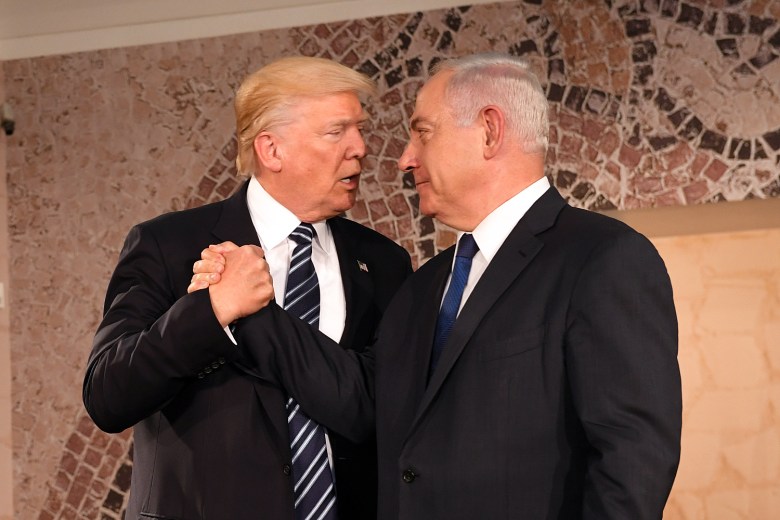Politics
Israel Must Adapt to the Shifting Multipolar Global Landscape

The global landscape is undergoing a significant transformation as the era of American dominance wanes and new power centers emerge. Israel is now faced with the challenge of reassessing its strategic orientation and diplomatic priorities within this evolving multipolar reality. As the influence of the United States diminishes, Israel must navigate a complex environment marked by the rising assertiveness of countries like China and Russia.
For decades, Israel’s foreign policy has thrived under the protective umbrella of American hegemony. The United States has not only been Israel’s primary ally but also a global hegemon whose interests heavily influenced international dynamics. This relationship allowed Israel to pursue regional goals with the assurance of substantial American military and diplomatic support.
The dynamics are shifting, however. With the economic ascent of China and the resurgence of Russia as a great power, Israel faces both new challenges and opportunities. Policymakers in Israel must now consider whether their long-standing alignment with Washington can continue to serve their national interests or if a more flexible approach is necessary.
Adapting to New Realities
Israel’s traditional strategy of near-total alignment with the United States made sense during a time of American supremacy. Yet, in a multipolar world, this rigid alignment is increasingly costly. For instance, Israel’s economic relationship with China has grown significantly, with Israeli technology firms relying on Chinese investment. Yet, the pressure from the United States to distance itself from Beijing poses risks to these vital economic ties.
Moreover, Israel’s dealings with Russia, particularly in Syria, highlight the limitations of a Washington-centric foreign policy. As the United States has reduced its direct involvement in the Middle East, Russia has emerged as a significant player. The coordination between Israeli and Russian forces in Syria, despite the broader tensions between Washington and Moscow, reflects the necessity for Israel to adapt its strategies in response to a changing power landscape.
The Abraham Accords represent a notable shift in Israeli foreign policy, allowing for the normalization of relations with UAE, Bahrain, Morocco, and Sudan. These agreements indicate a recognition among regional actors that the established order is evolving, necessitating new forms of cooperation to address shared concerns. The warming ties between Israel and Saudi Arabia also signal a broader regional realignment, driven by apprehensions about Iranian influence and a growing skepticism regarding the reliability of American security guarantees.
Strategic Economic Diversification
Israel’s status as a technology powerhouse brings both opportunities and challenges in this multipolar context. While Israeli innovation is highly valued, the fragmentation of global markets into competing blocs could force critical decisions that limit access to essential markets. Key sectors like semiconductors, artificial intelligence, and cybersecurity are increasingly seen as battlegrounds for technological supremacy, compelling countries to align with specific economic powers.
Navigating this environment requires Israel to maintain its technological edge while avoiding excessive dependence on any single bloc. This involves sophisticated risk management and a more nuanced approach to investment and technology transfer, moving beyond a traditional focus on Western markets.
The transition to a multipolar world offers Israel a chance to enhance its strategic autonomy. European nations have shown that strong alliances with the United States can coexist with independent stances on critical national issues. Israel may need to adopt a similar flexibility, ensuring it maintains core commitments to the U.S. while preserving the freedom to act on issues where interests diverge.
Challenges such as Iran’s nuclear ambitions and regional activities remain Israel’s top security concerns. Addressing these threats in a multipolar context will require innovative approaches. With both China and Russia maintaining ties with Tehran, Israel cannot rely solely on U.S.-led initiatives to contain Iranian influence. This may involve the creation of regional security frameworks inclusive of multiple powers or developing deterrence strategies that do not depend entirely on American military support.
The shift towards a multipolar world carries inherent risks and opportunities for Israel. While it may lose the certainties afforded by American dominance, it can also gain greater strategic autonomy and diversified partnerships, allowing it to play a more independent role in regional affairs.
Success in navigating this new environment will necessitate that Israeli leaders extend their thinking beyond the familiar frameworks of the past. It requires a sophisticated understanding of balance-of-power dynamics, nuanced diplomacy, and an openness to engage with the current global reality.
The era of American hegemony has granted Israel unprecedented security and prosperity. The emerging multipolar landscape could enable sustainable influence in a more complex but potentially stable international system. The key lies in adaptation—preserving essential relationships while cultivating the agility to thrive in a world where American priorities no longer dictate global outcomes. Israel’s ability to embrace these changes will be crucial as it seeks to navigate the complexities of a rapidly evolving geopolitical landscape.
-

 Business5 months ago
Business5 months agoKenvue Dismisses CEO Thibaut Mongon as Strategic Review Advances
-

 Lifestyle4 months ago
Lifestyle4 months agoHumanism Camp Engages 250 Youths in Summer Fest 2025
-

 Sports4 months ago
Sports4 months agoDe Minaur Triumphs at Washington Open After Thrilling Comeback
-

 Sports5 months ago
Sports5 months agoTupou and Daugunu Join First Nations Squad for Lions Clash
-

 Top Stories5 months ago
Top Stories5 months agoColombian Senator Miguel Uribe Shows Signs of Recovery After Attack
-

 World5 months ago
World5 months agoASEAN Gears Up for Historic Joint Meeting of Foreign and Economic Ministers
-

 Health4 months ago
Health4 months agoNew Study Challenges Assumptions About Aging and Inflammation
-

 Business5 months ago
Business5 months agoOil Prices Surge Following New EU Sanctions on Russia
-

 Entertainment4 months ago
Entertainment4 months agoDetaşe-Sabah Violin Ensemble Captivates at Gabala Music Festival
-

 Entertainment4 months ago
Entertainment4 months agoBaku Metro Extends Hours for Justin Timberlake Concert
-

 Top Stories5 months ago
Top Stories5 months agoRethinking Singapore’s F&B Regulations Amid Business Closures
-

 Business5 months ago
Business5 months agoU.S. House Approves Stablecoin Bill, Sends to Trump for Signature









